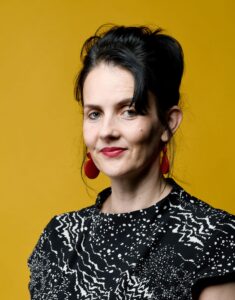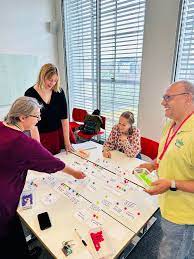
Learning to read is a human right yet children with developmental disabilities often receive inadequate literacy instruction. This issue is compounded by the fact that some parents and educators may hold lower expectations for these children, which can limit their access to valuable learning opportunities and essential resources.
Professor Joanne Arciuli from Flinders Caring Futures Institute emphasises the vital role schools play in literacy:
“Inclusive literacy practices in schools ensure that all children are given opportunities to learn which affects a variety of life outcomes including academic, vocational, social and health outcomes.”

Professor Joanne Arciuli is a member of the Healthy Start to Life area of the Caring Futures Institute and leads a program of research focussed on child development and disability with particular expertise in communication, cognition, and wellbeing. Notably, she has recently secured nationally competitive grant funding for ongoing projects in this field as lead investigator from the Australian Research Council and Channel 7 Children’s Research Foundation.
Earlier this year Professor Arciuli was invited to be a visiting scholar at Nottingham Trent University, United Kingdom, for a month. She shared that Nottingham was a major centre of lace production at one point in history and she enjoyed walking among the striking curved buildings in the Old Lace Market District.
The purpose of her visit was to spend time with long-time colleague Professor Clare Wood and her team at the prestigious Centre for Research in Language, Education and Developmental Inequities (CLEDI).
Professor Wood and Professor Arciuli have known each other for several years through their involvement with the international Society for Scientific Studies of Reading.
“We both have expertise in children’s literacy development but have not yet undertaken research together,” Professor Arciuli explained, “by joining forces, we can increase internationalisation activities at our respective universities with a view to making global impact on inclusive literacy practice in partnership with policy makers, clinicians, educators, parents, and of course children.”

Together with Professor Wood and their co-authors, Professor Arciuli is writing a paper that offers policy guidance for inclusive literacy instruction. Their aim is to provide a framework that supports educators, policymakers, and stakeholders in creating environments where every child can thrive academically.
During her visit, Professor Arciuli presented her research at a CLEDI stakeholder meeting attended by local school educators. She also shared the findings from her research on co-design practices; a project funded by the Caring Futures Institute, which she led with co-authors from the Institute during her time as methodological innovations lead and Dean of Research at the College of Nursing and Health Sciences.
The team at CLEDI invited Professor Arciuli to preview a new tool for co-design and interdisciplinary collaboration called CoNavigator.
“This new tool is unlike any other I’ve used previously. It is not just about distilling ideas into a single consensus view. It allows for far more complex and inclusive idea generation and planning than other tools.”
Learn more about Professor Arciuli’s involvement in projects focused on advancing literacy practices and inclusive education:
BPS Journals – British Journal of Educational Psychology
ASHA Journals – Language, Speech, and Hearing Services in Schools

